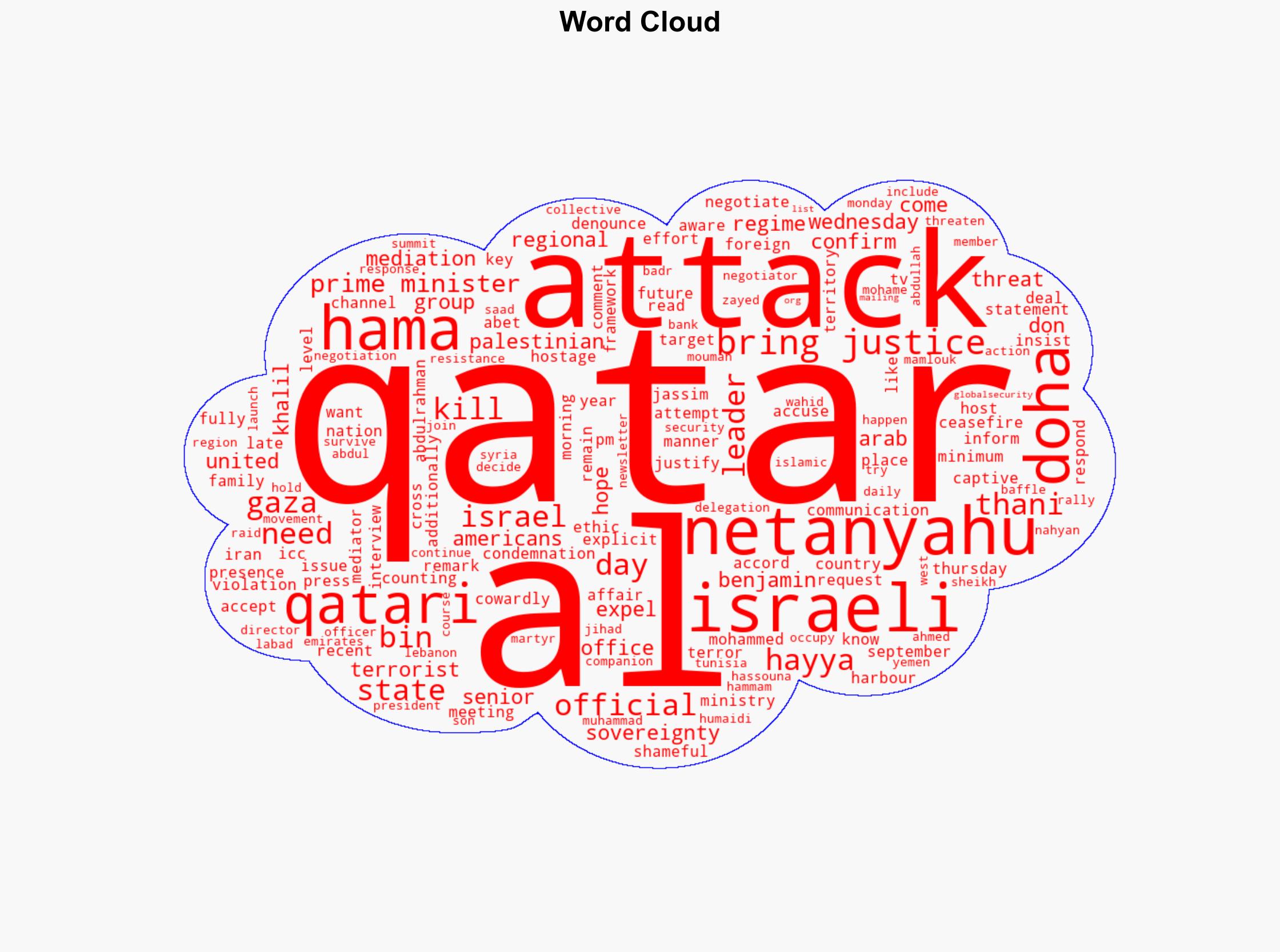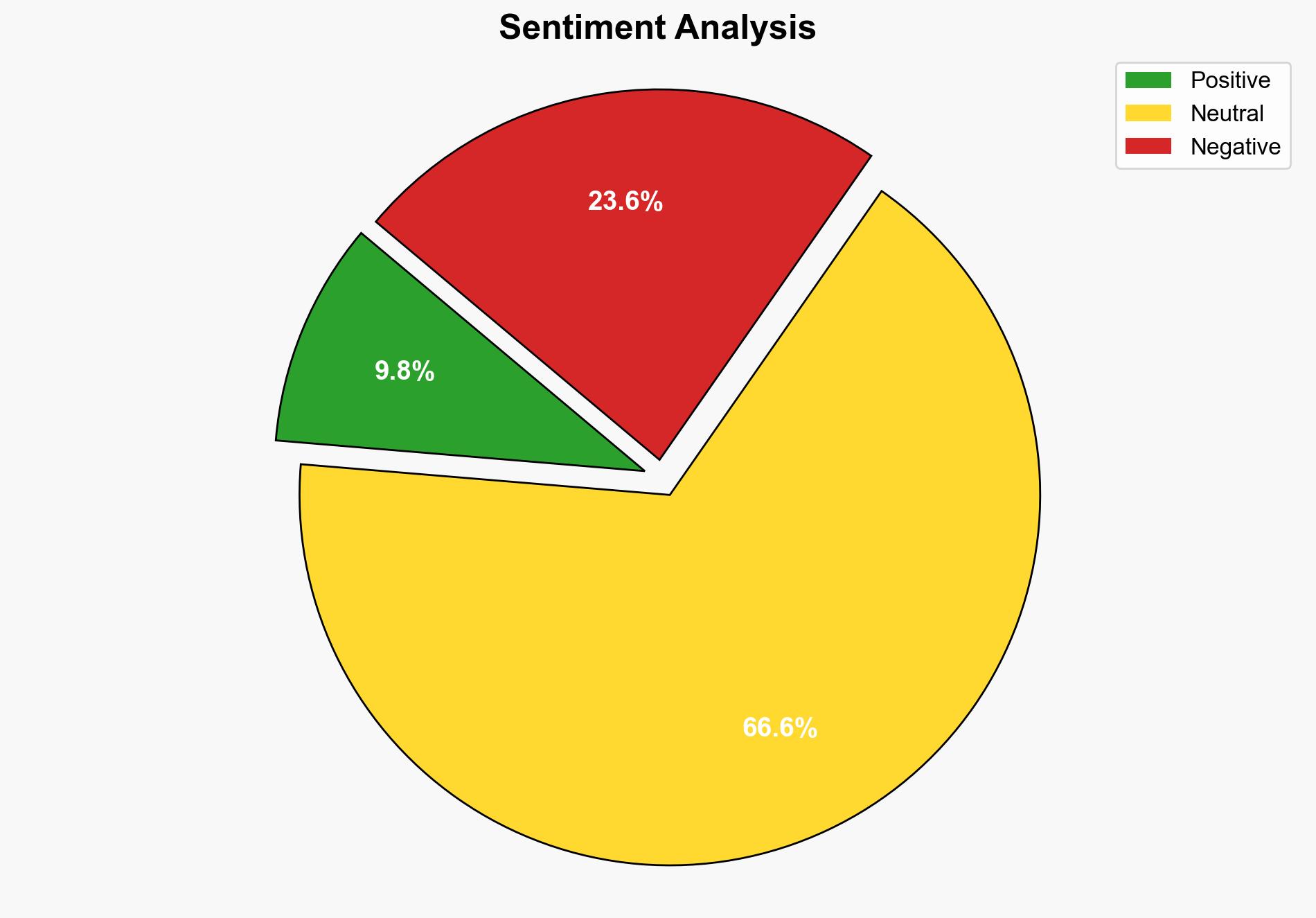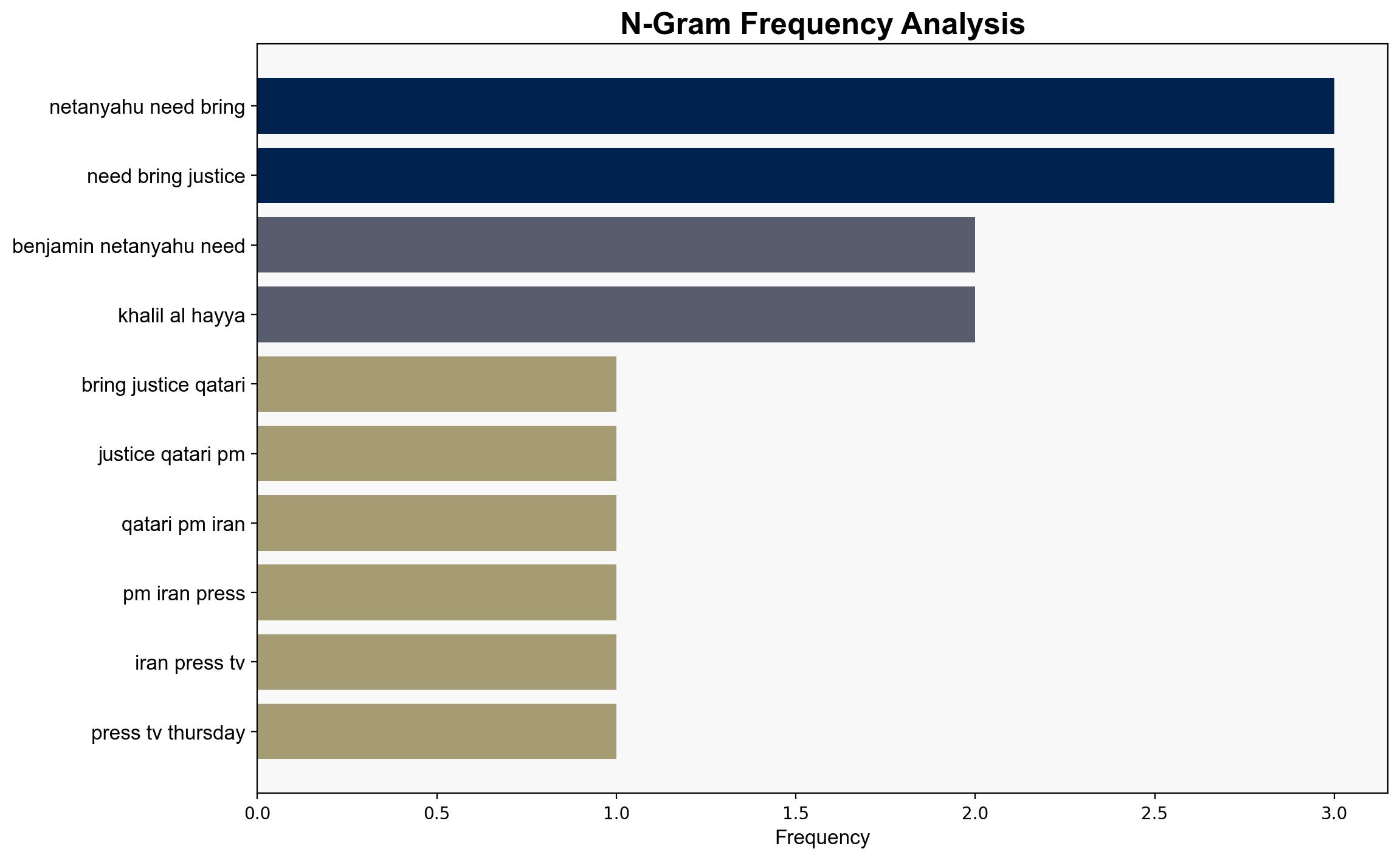Benjamin Netanyahu needs to be ‘brought to justice’ Qatari PM – Globalsecurity.org
Published on: 2025-09-11
Intelligence Report: Benjamin Netanyahu needs to be ‘brought to justice’ Qatari PM – Globalsecurity.org
1. BLUF (Bottom Line Up Front)
The escalating rhetoric between Qatar and Israel, particularly involving Benjamin Netanyahu and the Qatari Prime Minister, signals a potential diplomatic crisis with regional security implications. The most supported hypothesis suggests that Qatar’s statements are a strategic maneuver to strengthen its regional influence and mediate the Israeli-Palestinian conflict. Confidence level: Moderate. Recommended action: Monitor diplomatic communications closely and engage in multilateral discussions to de-escalate tensions.
2. Competing Hypotheses
1. **Qatar’s statements are primarily a strategic maneuver**: Qatar aims to enhance its regional influence and position itself as a key mediator in the Israeli-Palestinian conflict. This hypothesis is supported by Qatar’s historical role in mediation and its hosting of Palestinian leaders.
2. **Qatar’s statements reflect genuine security concerns**: Qatar perceives a direct threat from Israeli actions and rhetoric, prompting a defensive diplomatic stance. This hypothesis is supported by Qatar’s condemnation of Israeli attacks and the emphasis on sovereignty violations.
3. Key Assumptions and Red Flags
– Assumption 1: Qatar’s diplomatic actions are primarily driven by regional influence ambitions.
– Assumption 2: Israel’s accusations against Qatar are based on intelligence regarding Hamas activities.
– Red Flag: Lack of direct evidence linking Qatar’s actions to an immediate security threat from Israel.
– Blind Spot: Potential undisclosed communications between Qatar and other regional actors that could influence the situation.
4. Implications and Strategic Risks
– **Geopolitical Risks**: Increased tensions could destabilize regional alliances and provoke broader Middle Eastern conflict.
– **Economic Risks**: Potential disruptions in energy markets if regional hostilities escalate.
– **Cybersecurity Risks**: Heightened risk of cyber-attacks targeting critical infrastructure in both nations.
– **Psychological Impact**: Heightened public anxiety and potential for radicalization in response to perceived threats.
5. Recommendations and Outlook
- Engage in diplomatic dialogue through neutral parties to reduce tensions.
- Enhance intelligence-sharing mechanisms to clarify intentions and prevent misinterpretations.
- Scenario Projections:
- Best Case: Successful mediation leads to de-escalation and renewed peace talks.
- Worst Case: Diplomatic breakdown leads to military confrontations and regional instability.
- Most Likely: Continued diplomatic posturing with intermittent negotiations.
6. Key Individuals and Entities
– Benjamin Netanyahu
– Mohammed bin Abdulrahman bin Jassim Al Thani
– Khalil al-Hayya
– Abdullah Abdul Wahid Mouman
– Badr Saad Muhammad Al Humaidi
7. Thematic Tags
national security threats, cybersecurity, counter-terrorism, regional focus





